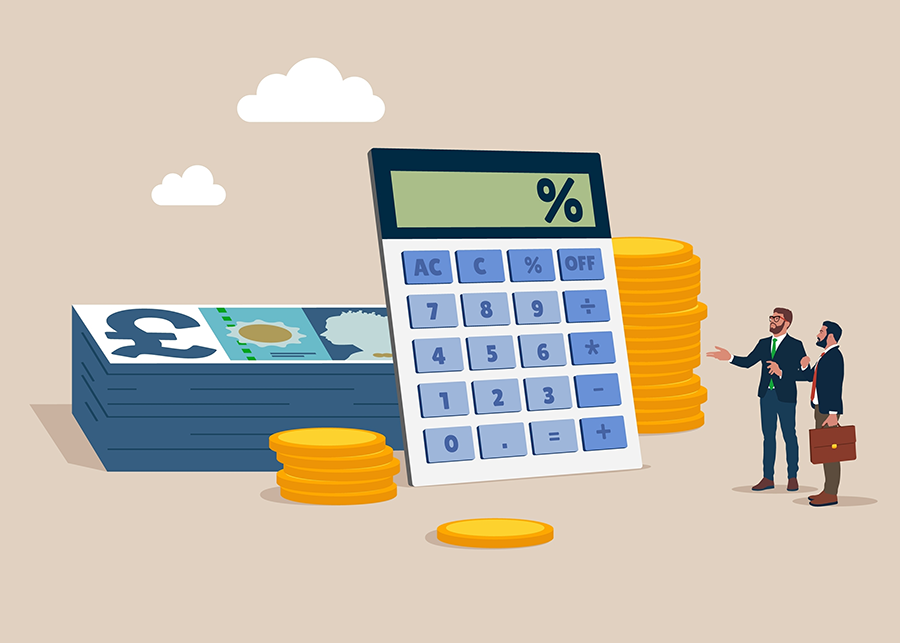
At some point in your business journey, growth may feel like the natural next step, but the funds might not be immediately available. That's where having the right finance in place can make all the difference.
Whether you're expanding your premises, upgrading equipment, managing cash flow, or investing in greener operations, borrowing isn't just about footing the bill. It's about enabling progress.
Here's a short guide to the main types of finance available, when they might be relevant, and how they can support your business goals.
Commercial mortgages
What it is:
A loan secured on commercial property, like offices, shops or warehouses. Similar to a residential mortgage, but for business use.
Common uses:
- Buying business premises
- Refinancing existing property
- Property development or refurbishment
- Equipment or vehicle purchases
Why consider it:
Provides long-term stability, potential for capital growth, and can be structured with fixed or variable rates to suit your cash flow.
Specialist Buy-to-Let mortgages
What it is:
For landlords buying residential properties to let, often through a company. Useful for more complex setups, such as House in Multiple Occupations (HMOs), Multi-Unit Freehold Blocks (MUFBs), holiday lets, or applications involving expats.
Who it's for:
From first-time landlords to seasoned portfolio investors.
Why consider it:
Can be tailored to rental income needs and structured to improve tax efficiency.
Bridging finance
What it is:
A short-term, fast-access loan, typically secured against property. Used to bridge funding gaps where timing is tight, for example, purchasing one property before selling another.
Common use cases:
- Property auctions
- Chain breaks (when one or more parties in a property transaction chain withdraws, causing the entire process to stall or collapse)
- Time-sensitive purchases
Why consider it:
Quick to arrange, ideal when traditional financing options won't process fast enough.
Asset finance
What it is:
Funding to purchase business-critical assets, replace aging equipment, or expand current operations without needing to raise working capital before purchase or put additional pressure on cashflow.
Asset types:
- Hard: Vehicles, plant, heavy machinery
- Medium: IT systems, office equipment
- Soft: Software, training
- Green: Electric vehicles, energy-efficient tech
Why consider it:
Can improve cash flow, grant access to better equipment whether permanently or temporarily though an operating lease and there are some finances that include sustainability incentives.
Business loans
What it is:
A general-purpose loan with fixed or flexible repayment terms.
When to use:
To fund a one-off cost such as a project, purchase, or business upgrade.
Why consider it:
Many widely accessible options available, predictable repayments and versatile use across many business needs.
Growth Guarantee Scheme (GGS)
What it is:
A UK government-backed initiative offering loans to eligible small and medium-sized businesses (SMEs) for growth and investment. The scheme provides a government-backed guarantee to lenders, encouraging them to provide loans to businesses that might otherwise be too risky for them to consider.
When to use:
Businesses can use the finance for any legitimate business purpose, including managing cashflow and investment. If you are eligible it can be useful to consider if you're looking for more affordable funding for growth.
Why consider it:
An easier way to gain access to funding, often with lower interest rates and more favourable and flexbile terms.
Overdrafts
What it is:
A type of short-term borrowing that allows you to withdraw or spend more money than is currently available in your business bank account, up to an agreed limit.
When to use:
For short-term working capital needs or occasional cash flow pressure. An overdraft acts as a flexible buffer, giving your business the ability to keep operating smoothly when expenses arise unexpectedly or income is delayed.
Why consider it:
Interest is only charged on the amount used, making it a handy safety net.
Green finance
What it is:
Finance aimed at supporting environmentally responsible activity.
When to use:
- Switching to electric vehicles
- Installing solar panels
- Improving energy efficiency
Why consider it:
Reduces operating costs, strengthens your sustainability credentials, and often comes with incentives or support schemes.
Exit strategy finance
What it is:
Finance to support succession planning, ownership changes or sale.
When to use:
- Selling the business
- Retirement
- Internal buyouts
Why consider it:
Helps smooth the transition of a business between owners, protect business value, and support staff or management buy-ins.
How we help
Please note that, as accountants, we are not authorised to provide regulated financial advice. This blog is for general information only and should not be relied upon as a substitute for regulated financial advice.
That said, we work closely with a trusted network of independent financial advisers, commercial finance brokers, and specialist lenders. If you're exploring finance options and need tailored advice, we're more than happy to introduce you to the right people who can help you make informed decisions.
Get in touch
If you'd like to discuss your plans or explore your options further, just get in touch , we're always happy to help point you in the right direction.